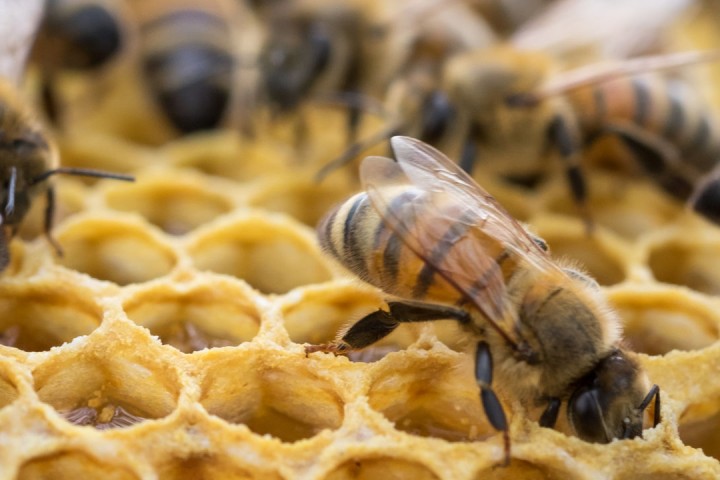Could the world's first bee vaccine save honeybees? Edible drug can protect the insects from killer infections

Called PrimeBEE, it is designed to protect bees from American foulbrood, a bacterial disease that has been wiping out entire colonies.
The vaccine, which is edible, 'protects bees from diseases while protecting global food production,' the university said.
'Pollinators falling ill and dying is a serious threat to the global food economy, said Dalial Freitak, a University of Helsinki scientist who developed the vaccine.
'Even a slight improvement in their life has vast significance on a global scale,' he said.
The goal is to protect the bees against American foulbrood, a bacterial disease caused by the spore-forming Paenibacillus larvae.
The vaccine, which is still in development, is groundbreaking as the insects immune systems do not contain antibodies, so traditional vaccines don't work.
'Now we've discovered the mechanism to show that you can actually vaccinate them.
'You can transfer a signal from one generation to another,' Freitak said.
The disease is the 'most widespread and destructive of the bee brood diseases,' the university added.
To distribute the vaccine, scientists place a sugar patty in the hive, which the queen then eats over the course of about a week.
Once ingested, the pathogens in the patty are then passed into the queen's eggs, 'where they work as inducers for future immune responses,'
American foulbrood (AFB) is a fatal bacterial disease of honey bee brood caused by the spore forming bacterium Paenibacillus larvae.
Heavy infections can affect most of the brood, severely weakening the colony and eventually killing it.
The disease is not able to be cured, meaning that destruction of infected colonies and hives or irradiation of infected material is the only way to manage AFB.
Although AFB is not highly contagious, bacterial spores can easily be spread between hives and apiaries through beekeeping practices such as through the exchange of equipment and movement of infected combs.
AFB spores can remain viable for over 50 years and are very resistant to freezing and high temperatures.
